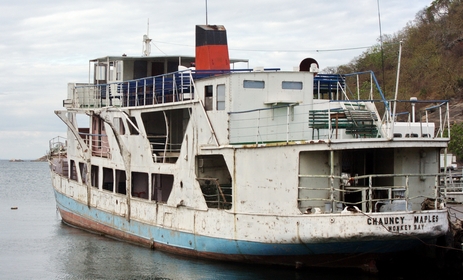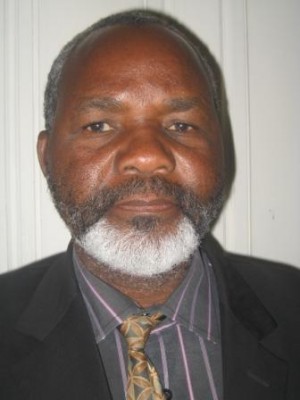
(CNN) — An ambitious project to turn Malawi’s oldest ship into a floating clinic could save thousands of lives around Lake Malawi by bringing medical care to small fishing villages.
For the families living along Lake Malawi’s 563-kilometer length, accessing healthcare is a real challenge.
Currently, many who need a doctor have to paddle dugout canoes for up to 80 kilometers to reach medical aid. It can be a dangerous journey and can take up to 16 hours.
During stormy weather waves can be high and drowning is common. There is also the risk of attack by hippos and crocodiles in the lake.
“Districts that are part of Lake Malawi still have an average of more than 25% of their population not accessing health care,” explained the country’s Principal Secretary of Health, Dr Charles Mwansambo.
–Dr Charles Mwansambo, Principal Secretary of Health
“This presents a real challenge as people have to use any available water transportation to access health care although that option may be risky at times. Water transport is also not available all the time,” he continued.
The lake is Africa’s third largest and it makes up a fifth of Malawi’s total area. For the four million residents living along the lakeside there is no road access to health facilities. There is only one doctor for every 52,000 people here.
The country’s oldest ship, Chauncy Maples, was built by the British as a clinic in 1899, but since then has been used as a gunship, and more recently as the local bar. Moored on Lake Malawi’s Monkey Bay, the steamer has not sailed for more than a decade.
British author and journalist Janie Hampton was on holiday in Malawi in 2009 when she saw that renovation of the boat had begun but the government didn’t have enough money to finish the project.
“When I got back to Oxford (in England) I learned that Bishop Chauncy Maples was a priest here, and the original plans for the ship were in my local library!” she said.
The bishop was ordained in the United Kingdom and sailed the boat in 1876 to Zanzibar where he set up clinics and schools for released salves. After working in Africa for 20 years the boat capsized on the way back to London in a storm on Lake Malawi and Maples drowned.
Hampton decided to set up the Chauncy Maples Malawi Trust to raise the remaining funds needed to finish reconstructing the boat. She quickly identified how much the lakeside communities needed the clinic.
–Janie Hampton, Chauncy Maples Malawi Trust
“Everyone I meet along the lakeside is very keen for this to happen,” she said. “There are long stretches where there are no roads, and no way to get to a clinic.
“Would you have your baby immunized against TB if it cost a month’s wages to go on a tiny crowded fishing boat, or by dugout canoe? I wouldn’t,” she continued.
Malawi has high rates of malaria, tuberculosis, HIV and AIDS, and life expectancy is just 52 years.
The government says that many of these diseases are preventable but that communities living along the lake often miss out on targeted campaigns and outreach programs which would provide immunization and hygiene promotion.
“During the rainy season there is a high prevalence of malaria,” said Patrick Zimpita, Director of Planning at the Ministry of Health. “Immunization coverage is very low because it is expensive, or even impossible, for a mother to take her children to the nearest clinic.”
Sailing between the small fishing villages scattered around the lake, once refurbished the clinic will stop by on a monthly cycle. The onboard nursing team will provide preventative health services such as family planning, ante-natal care and advice on child nutrition and safe sex.
“Mosquito nets can be given to pregnant women, who will also be advised to get to a hospital to give birth several weeks before their baby is due,” Hampton said. “High-risk births, such as twins — much more common in Africa — can be spotted and the mothers given advice.”
The trust has raised over half the amount needed for the renovation but thousands of dollars are still needed to complete the project. The hope is that many of the parts will be donated from marine companies.
New steel is required to replace thin patches on the outside of the hull and all the boat’s electronics need updating.
“We want to make sure she will last at least another 30 years!” Hampton said.
Subscribe to our Youtube Channel:



.jpeg&w=60&q=100&h=60)








